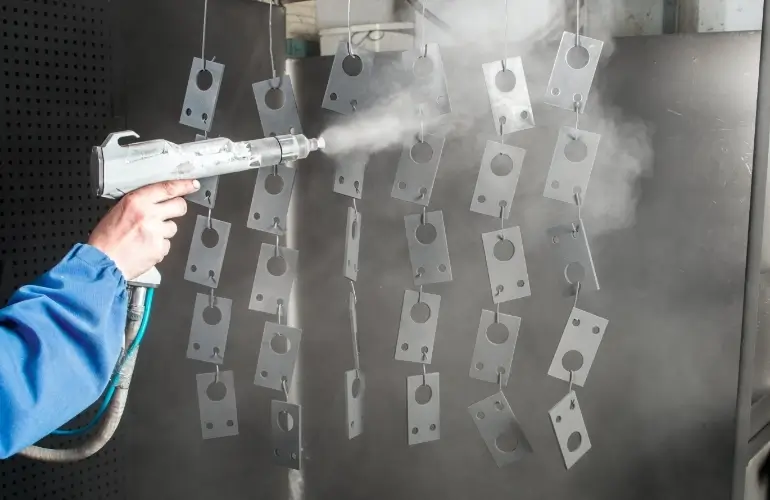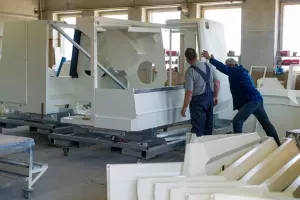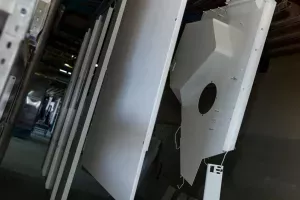Powder Coating
Powder coating is a method of applying paint in the form of powder to pre-cleaned metal using electrostatic or electrokinetic spraying.
This technology serves not only decorative purposes but also primarily aims to protect the material; the powder paint used secures the coated metal against corrosion.
Powder paints (coatings) – unlike liquid paints – allow for smooth coatings without cracks, drips, bubbles, or wrinkles, making powder coating technology the most effective method for coating metals. Powder coatings do not require a primer layer and can be used as anti-corrosion protection. They have very good mechanical properties and high resistance to chemical factors; the thermal resistance of the coating is about 100°C.

- We perform powder coating of aluminum, zinc, steel, and black steel.
- We offer our clients a wide range of colors (according to the RAL color palette), allowing for different gloss levels.
- Before painting, we clean the metal chemically or mechanically (shot blasting).
- Powder coating takes place in our coating facility in Pleszew, Wielkopolska, about 100 km from Poznań.
- We have an oven with dimensions: 7000 x 1500 x 2000 mm.
Surface Preparation Process Before Powder Coating
Preparing the metal surface before applying powder paint is crucial for achieving a durable and aesthetic result. This process consists of several stages:
- Degreasing – involves removing all contaminants such as grease, oils, or lubricants that may affect the paint's adhesion to the surface.
- Phosphating – a chemical surface preparation process that involves forming a thin phosphate layer on the metal surface. This layer increases paint adhesion and improves the anti-corrosion properties of the coating.
- Sanding – for surfaces with irregularities such as scratches or dents, it is necessary to smooth them by sanding before powder coating. This achieves a smooth and uniform surface, ensuring better paint adhesion.
Applications of Powder Coating in Various Industries
Powder coating is widely used in many industrial sectors, including:
- Automotive – used for painting body parts, wheels, bumpers, and other car parts that require durable and aesthetic corrosion protection.
- Construction – used for coating structural elements such as railings, handrails, fences, and aluminum profiles, providing durable protection against weather conditions.
- Electronics – used for painting enclosures of electronic devices such as computers and televisions, providing protection against external factors and improving product appearance.




